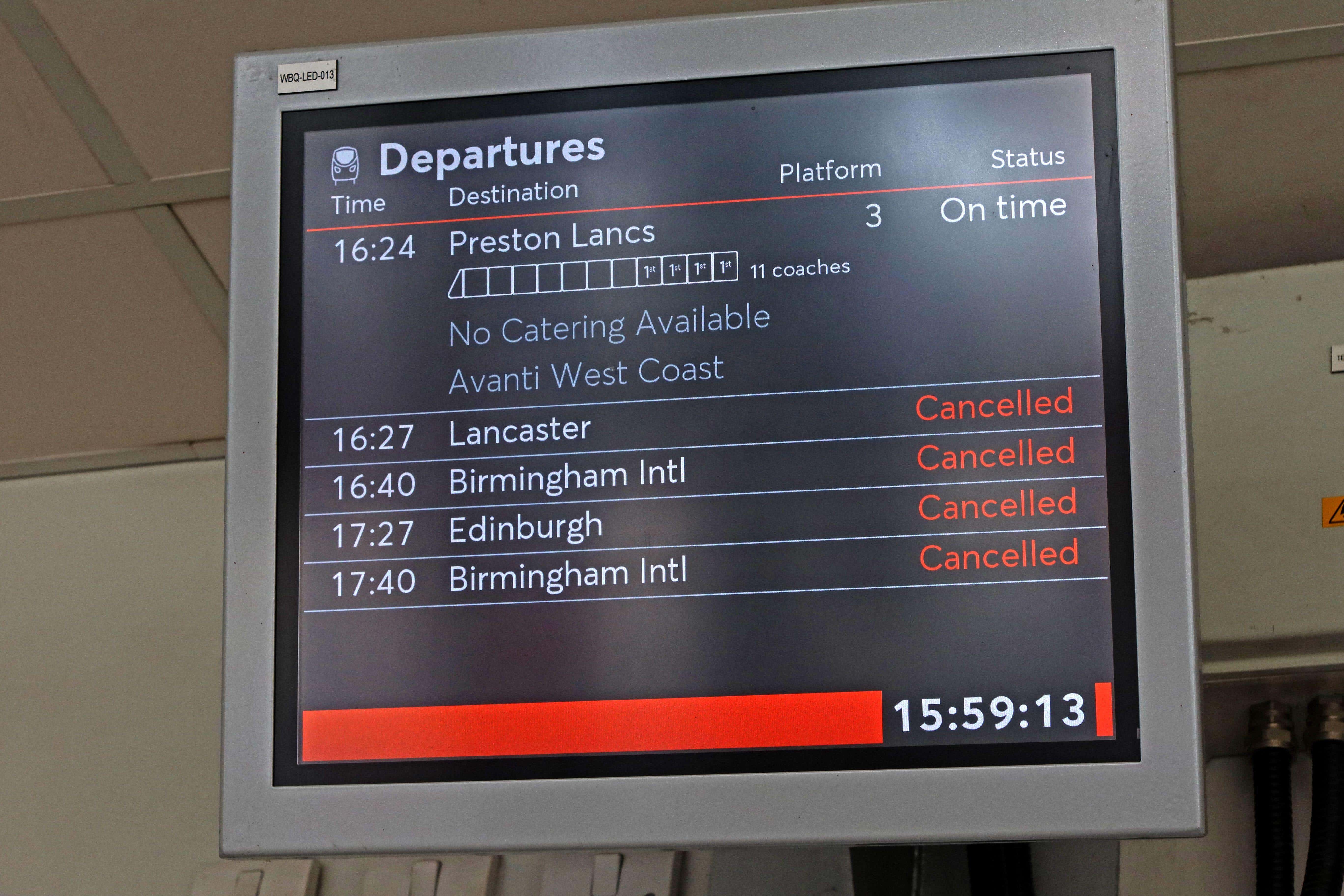Train cancellations up 8% in a year
The equivalent of 249,133 trains in England and Wales were cancelled in the year to the end of March, according to Office of Rail and Road (ORR) data.

Your support helps us to tell the story
From reproductive rights to climate change to Big Tech, The Independent is on the ground when the story is developing. Whether it's investigating the financials of Elon Musk's pro-Trump PAC or producing our latest documentary, 'The A Word', which shines a light on the American women fighting for reproductive rights, we know how important it is to parse out the facts from the messaging.
At such a critical moment in US history, we need reporters on the ground. Your donation allows us to keep sending journalists to speak to both sides of the story.
The Independent is trusted by Americans across the entire political spectrum. And unlike many other quality news outlets, we choose not to lock Americans out of our reporting and analysis with paywalls. We believe quality journalism should be available to everyone, paid for by those who can afford it.
Your support makes all the difference.Train cancellations in England and Wales have risen by 8% in the past year, latest figures show.
The equivalent of 249,133 trains were cancelled in the year to the end of March, according to Office of Rail and Road (ORR) data.
That is an average of 681 every day.
Everyone across the railway is working hard to make sure that train services are reliable
During the previous 12 months, the total was 230,799 at a daily average of 632.
The figures relate to what the rail industry describes as the cancellations score.
This counts each fully cancelled service as one cancellation, and each part-cancelled service as half a cancellation.
Average train fares rose by nearly 5% in England and Wales on March 3.
A spokesperson for the Rail Delivery Group, which represents operators, said: “We know how important reliability is to customers and apologise to everyone affected by cancelled services.
“Everyone across the railway is working hard to make sure that train services are reliable and punctual for passengers.
“This includes significant investment to improve infrastructure and rolling stock reliability.
“Train companies have worked hard to maintain as many services as possible, but cancellations or delays also can occur due to various factors; like weather and flooding, industrial action, infrastructure issues such as track or signalling faults, train faults and external incidents such as trespass.
“The railway continues to tackle these issues, and when train delays or cancellations do occur, we are proactively notifying passengers in advance and raising awareness of Delay Repay to simplify compensation claims for affected passengers.”
Meanwhile the i newspaper reported that Prime Minister Rishi Sunak’s decision to scrap plans to extend HS2 north of Birmingham could lead to higher fares on mainline services between London, Birmingham and Manchester.
It cited unnamed industry sources who believe this action will be needed to manage overcrowding.